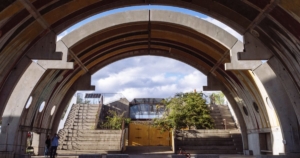If you have breast implants, the thought of a rupture can be unsettling. You might instantly imagine an emergency room dash—but is it really that urgent? The truth is, not all ruptures are emergencies, but all do need attention. Understanding what’s happening in your body can help you act calmly and confidently.
Understanding Breast Implant Rupture
A breast implant rupture means the outer shell of your implant has developed a tear or hole, allowing the filling (saline or silicone) to leak out. This can happen for several reasons—natural aging of the implant, accidental injury, or even issues during surgery.
Saline implants will usually deflate quickly after a rupture, while silicone implants may leak more slowly, often without obvious symptoms—something known as a “silent rupture.”
LOCAL NEWS: Here’s where new Phoenix residents are moving from
INDUSTRY INSIGHTS: Want more news like this? Get our free newsletter here
Signs and Symptoms of Breast Implant Rupture
It’s important to remember that the signs of a breast implant rupture can vary a lot depending on the type of implant you have and how quickly the leak happens. Being aware of these changes means you can spot a problem early and get the right care.
Saline Implant Rupture
If you have saline implants, ruptures are usually easy to spot because saline is simply sterile salt water. When the outer shell tears:
- Rapid Deflation: You might notice your breast losing volume over hours or days. One breast may suddenly look smaller or flatter.
- Change in Shape or Symmetry: Your breasts might look noticeably uneven.
- Wrinkling or Rippling of the Skin: The skin over the implant can look puckered or folded.
- Mild Tenderness: Some people feel slight soreness in the area.
The good news? Your body harmlessly absorbs the saline, so the main concern is aesthetic rather than dangerous.
Silicone Implant Rupture
Silicone ruptures can be much harder to detect. This is because silicone gel often stays trapped in the surrounding tissue rather than leaking out quickly.
- Subtle Change in Shape or Firmness: You may feel your breast becoming slightly harder or softer than before.
- Swelling or Lumps: Small silicone leaks can form lumps (called silicone granulomas) in the breast or nearby lymph nodes.
- Discomfort or Dull Ache: Some people notice an ongoing mild pain or heaviness.
- No Symptoms at All: This is called a “silent rupture,” which can only be picked up with imaging tests like MRI or ultrasound.
Is a Breast Implant Rupture a Medical Emergency?
When you hear “rupture,” it’s natural to think of an urgent, life-threatening situation—but breast implant ruptures rarely require a trip to the emergency room. That said, they should never be ignored, because untreated ruptures can cause complications over time.
When It’s an Emergency (Seek Immediate Care)
Call your doctor or go to urgent care right away if you experience:
- Sudden, Severe Pain: Especially if it’s accompanied by redness or swelling.
- Signs of Infection: Fever, chills, warmth at the site, or pus-like discharge from the incision area.
- Significant Swelling After Injury: For example, if you were in a car accident or had a fall onto your chest.
- Rapid Changes with Other Symptoms: Such as dizziness, shortness of breath, or chest tightness (rare but possible).
These symptoms could indicate more than just a rupture—they could be signs of infection, bleeding, or other urgent complications.
When It’s Urgent but Not an Emergency
If you notice any of the symptoms listed in the previous section but you’re otherwise feeling well, you can safely book an appointment with your plastic surgeon within the next few days to weeks.
For example:
- Slow loss of volume in a saline implant
- Firmness or shape change in a silicone implant
- Mild, occasional discomfort without redness or fever
Why You Still Need to Act Quickly
Even if you’re not in immediate danger, ruptures can lead to:
- Scar tissue tightening around the implant (capsular contracture)
- Silicone migration into surrounding tissue or lymph nodes
- Ongoing asymmetry that might require more complex surgery later
Health Risks of a Ruptured Implant
With saline implants: The body safely absorbs the saline, so the main concern is cosmetic—though the deflation can feel sudden.
With silicone implants: While medical-grade silicone is generally considered safe, leaked silicone can migrate into surrounding tissues, causing inflammation, scar tissue buildup (capsular contracture), or in rare cases, lymph node issues.
How to Confirm a Breast Implant Rupture
Your doctor will first perform a physical exam, then recommend imaging tests. MRI scans are considered the gold standard for detecting silent silicone ruptures, but ultrasound is often used as a first step.
What to Do if You Suspect a Rupture
- Don’t panic—most ruptures are not life-threatening.
- Avoid heavy physical activity until you’ve been evaluated.
- Call your plastic surgeon or primary care provider promptly.
- Follow their advice for imaging and next steps.
Treatment Options for a Ruptured Implant
If your implant is ruptured, you have two main choices:
- Removal (explant surgery)
- Replacement (new implant inserted, possibly with a different size or type)
Recovery typically takes 1–2 weeks for light activity, with full healing over several weeks.
Prevention and Monitoring
You can’t completely prevent ruptures, but you can reduce the risk by:
- Choosing high-quality implants and an experienced surgeon
- Wearing supportive bras during exercise
- Scheduling regular imaging (especially for silicone implants every 2–3 years)
Cost Considerations for Implant Replacement
Replacement costs vary widely based on implant type, surgeon expertise, and country. Many people explore breast augmentation Turkey because surgery in Turkey can be significantly more affordable while still offering high-quality care. However, always prioritize safety and credentials over cost alone.
Emotional Impact of a Rupture
A rupture can affect more than your physical appearance—it can impact your self-confidence. It’s completely normal to feel frustrated, anxious, or self-conscious. Talking to your surgeon, joining online support groups, or seeking counseling can help.
A breast implant rupture isn’t always an emergency—but it is something you shouldn’t ignore. By knowing the signs, understanding your options, and staying on top of regular monitoring, you can handle the situation with confidence and protect your health.
Thinking about replacing your breast implants or exploring safer, more affordable options? Visit Flymedi — the trusted marketplace where you can compare clinics, read real patient reviews, and choose the right surgeon with confidence. Your health, safety, and peace of mind deserve the best.




